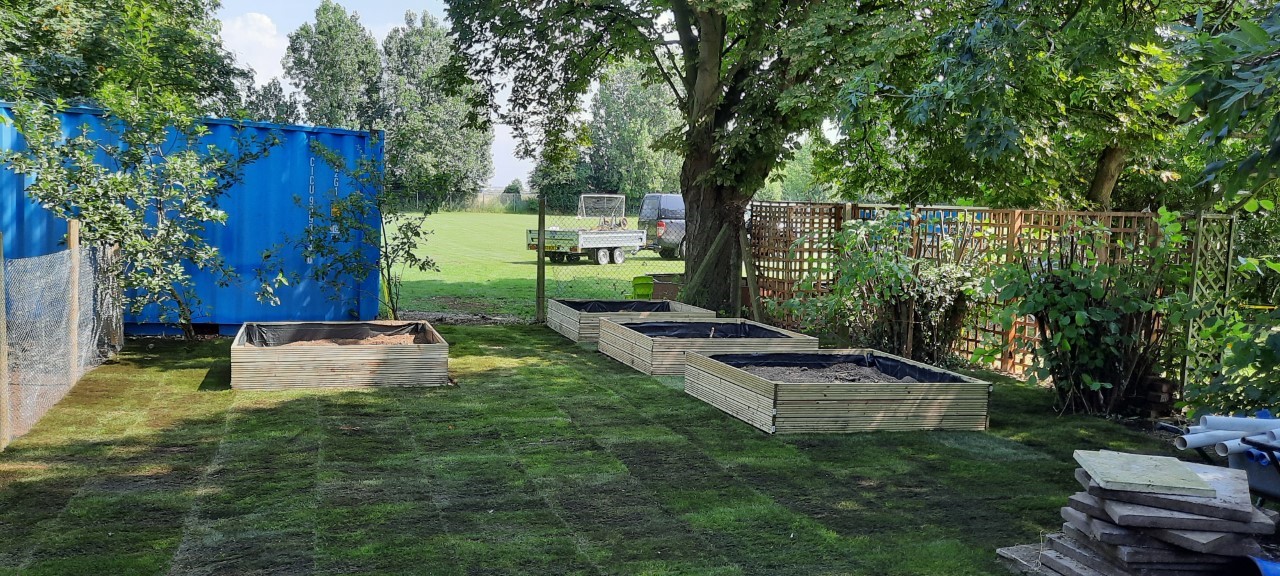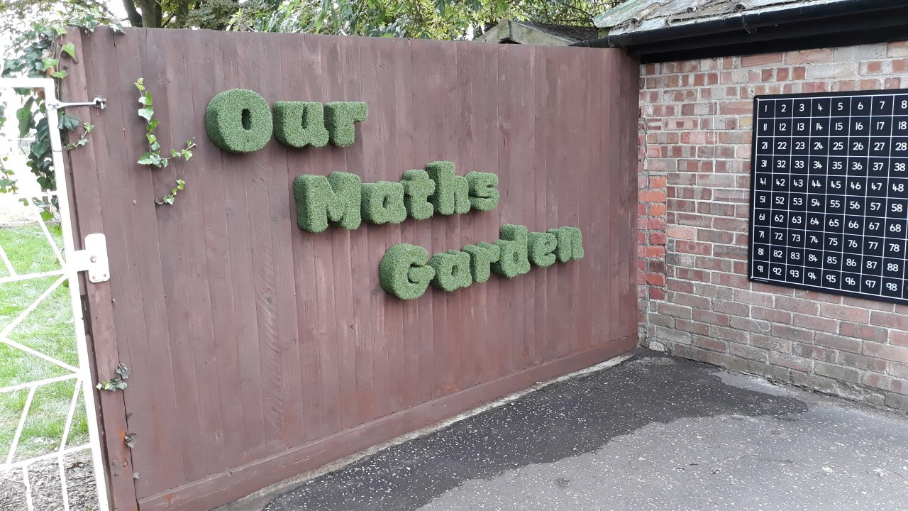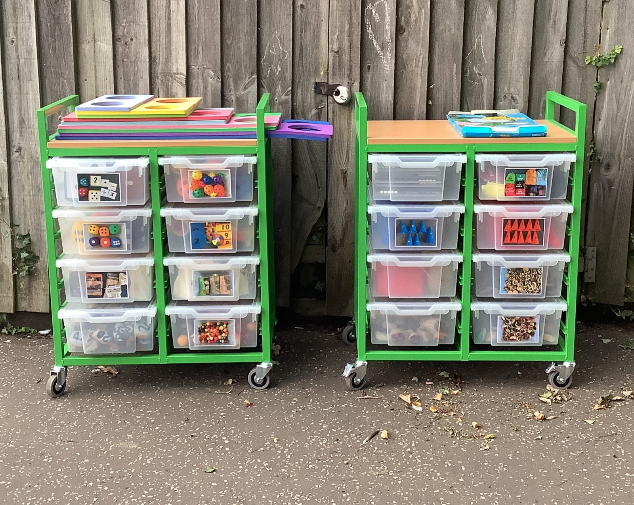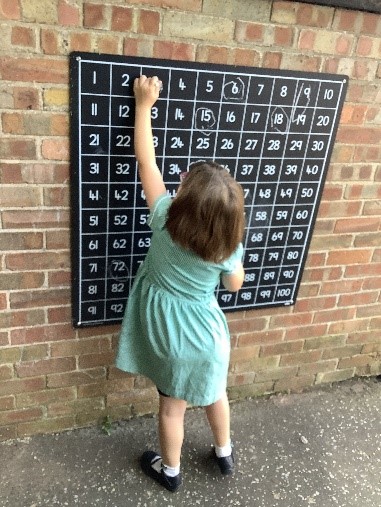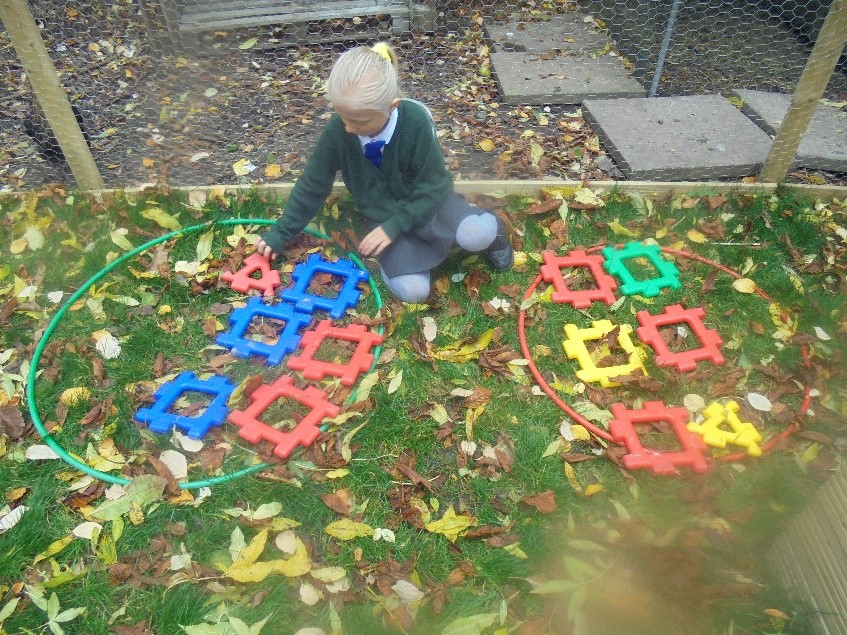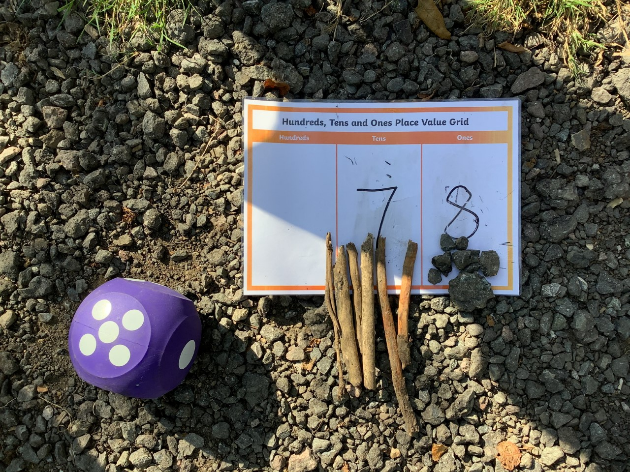by Teresa Ellington (November 2021)
Mastery Concept/Rationale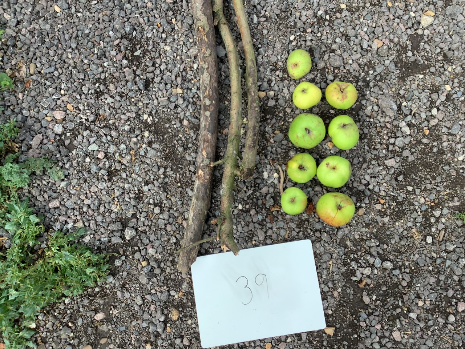
At Upwell Academy (a primary school in Norfolk), we follow a mastery approach in Mathematics – teaching for mastery is based on a belief that all of our children can achieve in maths.
In practice, this means our children are taught concepts which are built in small, logical steps and are explored through clear mathematical models and images. The focus is on depth – not acceleration – so all of our children have a chance to embed their mathematical learning.
It is really important that learning is not superficial. For example, a child may understand how to use a particular method, but to demonstrate they have a deep understanding they need to explain why it works and why it’s efficient. Our teachers challenge children who grasp concepts quickly by providing sophisticated problems, rather than by accelerating them through new content from other year groups. Our outdoor maths environment has enabled this to continue outside of the conventional classroom.
Mastery Outdoors – Our Maths Garden
To support teaching for Mastery, we have developed high-quality resources that complement lesson coherency and provide further opportunities for regular practice, but with the added benefit of taking this learning to the ‘not so far’ great outdoors!
Our children use objects and pictures to physically represent mathematical concepts alongside numbers and symbols as part of a typical mastery lessons indoors – this helps them to visualise ideas. Now imagine them doing this, but with grouping real eggs in arrays (in eggboxes) laid by our chickens and further envisage the rich level of mathematical discussion that can be achieved! This is just one ‘eggsample!’
Across all year groups, our teachers utilise the space and resources to teach problem solving, measurements, geometry, data gathering, counting, percentages and many more aspects. Teaching mathematics this way provides our children with hands-on interactions to support theoretical approaches taught, as well as memorable, fun experiences to help make mathematical learning ‘stick.’
Some of the most basic everyday concepts start with mathematical knowledge. Our Maths Garden affords a way to instruct these basic ideas with an inviting and entertaining environment, that may be carried through to our children’s adulthood. The simple ability to count as children decide: How many rows should I plant? How many seeds should I sow in each area?
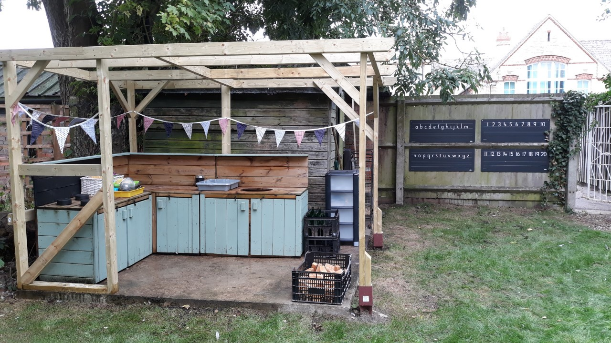 Maths garden tasks, such as measuring the area for a plot, or collecting data regarding the growth of vegetables or the number of minibeasts, become embedded when the children reinforce the learning during their own playtime. The children make effective use of the mud kitchen (pictured), which provides a ‘real-world’ kitchen experience (dependent upon how messy you are as a cook, of course!). Working together to make the next greatest mud pie offers opportunities to measure quantities whilst developing social skills such as conversation, listening, sharing and teamwork.
Maths garden tasks, such as measuring the area for a plot, or collecting data regarding the growth of vegetables or the number of minibeasts, become embedded when the children reinforce the learning during their own playtime. The children make effective use of the mud kitchen (pictured), which provides a ‘real-world’ kitchen experience (dependent upon how messy you are as a cook, of course!). Working together to make the next greatest mud pie offers opportunities to measure quantities whilst developing social skills such as conversation, listening, sharing and teamwork.
The Maths Garden also allows our children to immerse themselves in these concepts as they pursue the development and growth of the garden. Basic geometry will prove useful as our children contemplate shapes and the design of the garden. With access to the outdoor maths resource trolleys, our playhouse, shop and market area, our new chicken enclosure, coop, and our mud kitchen, our teachers use maths in the garden as a curriculum tool to help the children to understand how maths is applicable in real-life contexts.
Special Educational Needs, Citizenship & Enterprise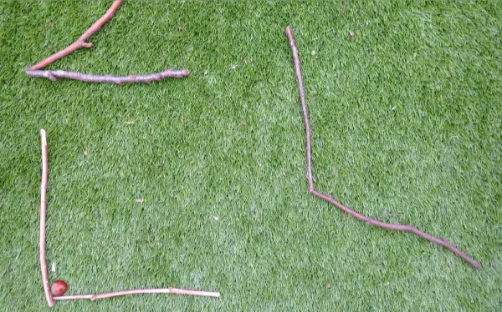
Additionally, the Maths Garden provides a space for further school interventions, supporting children with additional needs in a place where they can enjoy exploring nature and being with friends. Wellbeing, social skills, and citizenship are all enhanced through spending time with the chickens and learning how to provide care and how to behave around them. Children are keen to learn more and share the knowledge they have gained with others. Eggs are collected daily, counted and distributed for sale.
Community Inspiration
Inspiration for the project evolved from regular visits to our local green space, less than a mile from the Academy: Edith Blunt Gardens. It provides a developing outdoor educational space which the children can visit both during and out of school time to continue their learning.
Feedback & Impact
Key feedback from our staff and children shows that they are excited about the teaching and learning of mathematics outdoors and, as we all know, the easiest lessons to learn in life are those in which we enjoy participating. Impact on outcomes/standards will be known reviewed towards the end of the Autumn Term.
I love doing maths even more in our maths garden. I especially enjoyed exploring shape and making large 2D shapes with my group at lunchtime and I am excited to collect and count up our eggs too! Sam, Year 3.
Special Thank You
A special thank you to Val Cook, Chair of Upwell Academy Council, FOSA and all of the Academy staff who have helped to see the project through to fruition.
Teresa Ellington – Deputy Principal and Mathematics Lead, Upwell Academy. Teaching and Learning Associate EMAT.
Resources:
Maths in action
Counting and number recognition:
Division:
Number and place value:
.
.



